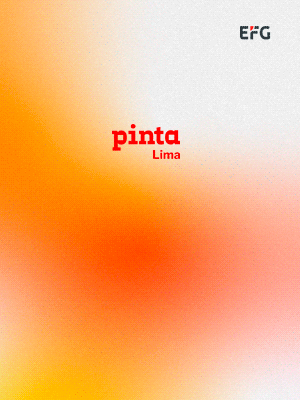ALŸS AND THE COLLABORATIVE PHILOSOPHY OF THE GAME AT SERRALVES
Francis Alÿs (Antwerp, Belgium, 1959) began, at the end of the last century, to abandon the exclusivity of his body as the subject of the actions of his artistic proposal to begin to explore the possibility of finding and employing other subjects for this purpose. With this idea, the figure of children gained more and more importance in his production and became the sign of identity of a new stage for the new millennium.
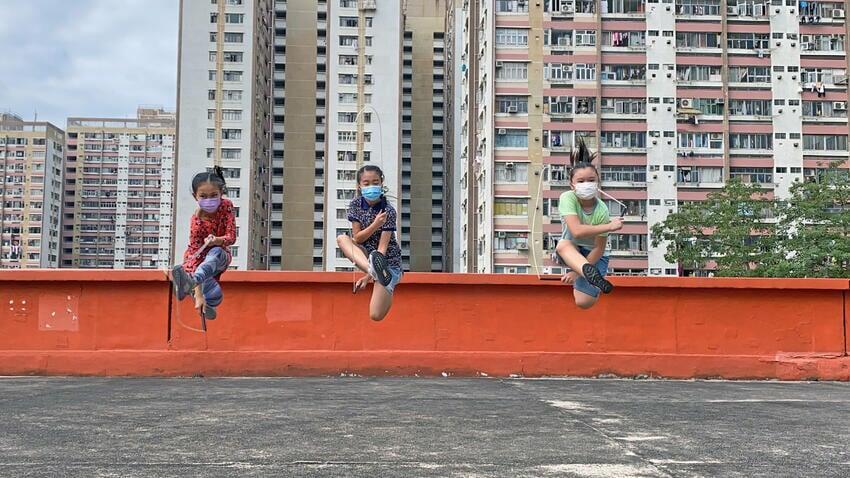
His video Children's Game #2: Ricochets (2007) is the nominal starting point for the exhibition now on view at the Serralves Museum in Oporto, the second time it has been shown at the Barbican in London. This exhibition is born, precisely, from that turn that he executes integrating more necessary agents in his practice and that elevates to collaborative the nature of his proposal, more oriented to that philosophy of collective without losing the body and its dynamics as a vertebral axis as well.
Ricochets explores this aspect from several exhibited works that navigate between video and animation and to which the tangibility of physical areas dedicated to the game has been added. The titles exhibited in the videographic part are framed within the production of more than three decades that the artist, based in Mexico, has produced around the world on the theme of children's play. This collaborative framework takes us, practically, to the philosophy behind the game, regardless of where the action is located, which, however, is the thesis that unites everything.
Among those works, there are other animated works created by Alÿs himself, more focused on the apparent executive simplicity of hand games, but that integrate, almost like instructions, the literalness of the theme and that can be executed during the tour, since the exhibition proposes a hybrid path with those physical spaces that encourage to put into practice the apparent theory, and that are also complemented with groups of small format paintings made in the last five years and that, illuminated, also open new ways of dialogue.
Ricochets can be seen until March 16, 2025 at the Serralves Museum, Dom João de Castro 210, Porto (Portugal).
May interest you
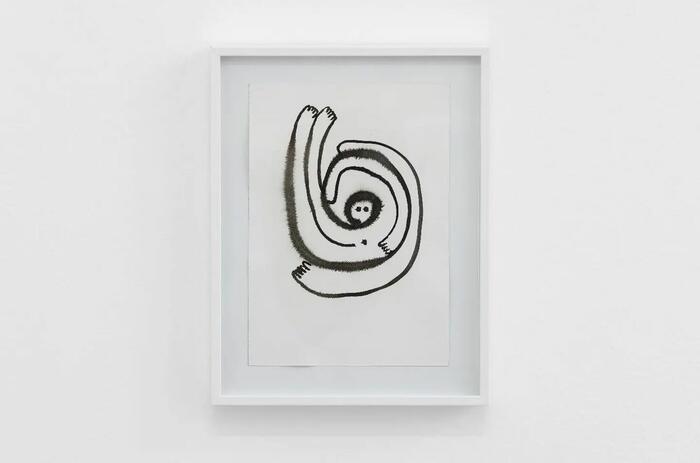
The Kunsthalle Lissabon presents Quinze Anos de Amor na República dos Pangolins (Fifteen Years of Love at the Pangolin Republic), the third and last exhibition with which the institution celebrates its fifteenth anniversary. On this occasion, the center has invited curator Filipa Ramos, one of the Portuguese professionals with the most international projection, who has managed to put together a roster of artists with a strong Latin American presence, with Ad Minoliti, Amalia Pica, Daniel Gustav Cramer, Flora Rebollo, Gabriel Chaile, Haris Epaminonda, Irene Kopelman, Jonathas de Andrade, Luís Lázaro Matos, Mariana Caló and Francisco Queimadela, Mounira Al Solh, Nuno Sousa Vieira, Sheroanawe Hakihiiwe, Sol Calero, Teresa Solar Abboud and Wilfredo Prieto.
LATIN AMERICA AT THE XV ANNIVERSARY OF KUNSTHALLE LISSABON
The Kunsthalle Lissabon presents Quinze Anos de Amor na República dos Pangolins (Fifteen Years of Love at the Pangolin Republic), the third and last exhibition with which the institution celebrates its fifteenth anniversary. On this occasion, the center has invited curator Filipa Ramos, one of the Portuguese professionals with the most international projection, who has managed to put together a roster of artists with a strong Latin American presence, with Ad Minoliti, Amalia Pica, Daniel Gustav Cramer, Flora Rebollo, Gabriel Chaile, Haris Epaminonda, Irene Kopelman, Jonathas de Andrade, Luís Lázaro Matos, Mariana Caló and Francisco Queimadela, Mounira Al Solh, Nuno Sousa Vieira, Sheroanawe Hakihiiwe, Sol Calero, Teresa Solar Abboud and Wilfredo Prieto.

The Kunsthalle Lissabon presents Quinze Anos de Amor na República dos Pangolins (Fifteen Years of Love at the Pangolin Republic), the third and last exhibition with which the institution celebrates its fifteenth anniversary. On this occasion, the center has invited curator Filipa Ramos, one of the Portuguese professionals with the most international projection, who has managed to put together a roster of artists with a strong Latin American presence, with Ad Minoliti, Amalia Pica, Daniel Gustav Cramer, Flora Rebollo, Gabriel Chaile, Haris Epaminonda, Irene Kopelman, Jonathas de Andrade, Luís Lázaro Matos, Mariana Caló and Francisco Queimadela, Mounira Al Solh, Nuno Sousa Vieira, Sheroanawe Hakihiiwe, Sol Calero, Teresa Solar Abboud and Wilfredo Prieto.
LATIN AMERICA AT THE XV ANNIVERSARY OF KUNSTHALLE LISSABON
The Kunsthalle Lissabon presents Quinze Anos de Amor na República dos Pangolins (Fifteen Years of Love at the Pangolin Republic), the third and last exhibition with which the institution celebrates its fifteenth anniversary. On this occasion, the center has invited curator Filipa Ramos, one of the Portuguese professionals with the most international projection, who has managed to put together a roster of artists with a strong Latin American presence, with Ad Minoliti, Amalia Pica, Daniel Gustav Cramer, Flora Rebollo, Gabriel Chaile, Haris Epaminonda, Irene Kopelman, Jonathas de Andrade, Luís Lázaro Matos, Mariana Caló and Francisco Queimadela, Mounira Al Solh, Nuno Sousa Vieira, Sheroanawe Hakihiiwe, Sol Calero, Teresa Solar Abboud and Wilfredo Prieto.
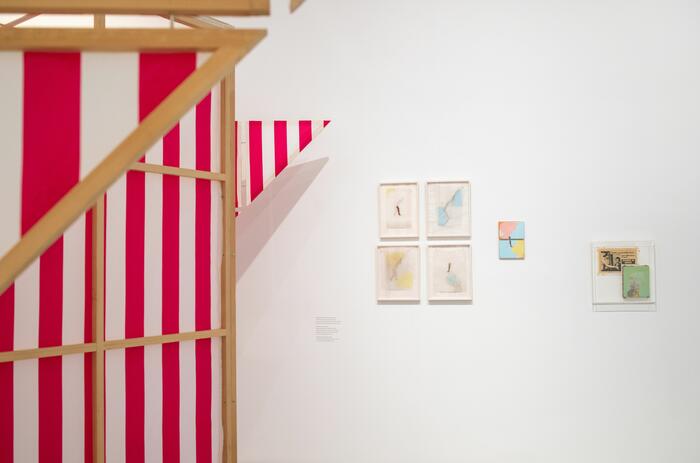
“I imagine the museum as an archipelago. It is not a continent, but an archipelago (...) The idea today is to put the world in contact with the world, to put some parts of the world in contact with other parts of the world... We must multiply the number of worlds inside museums”. Édouard Glissant (Sainte-Marie, Martinique, 1929-Paris, France, 2011) expressed his vision of museum functionality in this metaphorical way in his work Poetics of Relationship (1990).
CAN THE ARCHIPELAGO ENTER THE MUSEUM? IBEROAMERICA IN THE PROPOSAL OF THE HELGA DE ALVEAR MUSEUM
“I imagine the museum as an archipelago. It is not a continent, but an archipelago (...) The idea today is to put the world in contact with the world, to put some parts of the world in contact with other parts of the world... We must multiply the number of worlds inside museums”. Édouard Glissant (Sainte-Marie, Martinique, 1929-Paris, France, 2011) expressed his vision of museum functionality in this metaphorical way in his work Poetics of Relationship (1990).
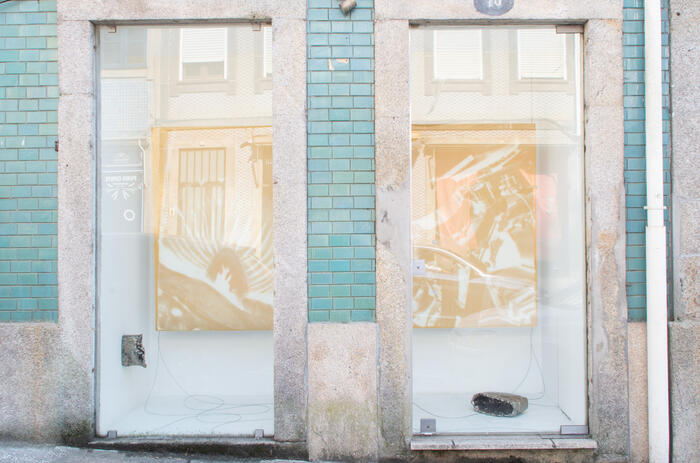
Kubikulo presents in its Oporto gallery Sol Raso, an installation by Gabriel Ribeiro (Rio de Janeiro, Brazil, 1990) that is presented as a material and superficial photographic event on polyurethane foams in which the evolution of the exposure of the materials to the elements and the sun for thirty days is captured.
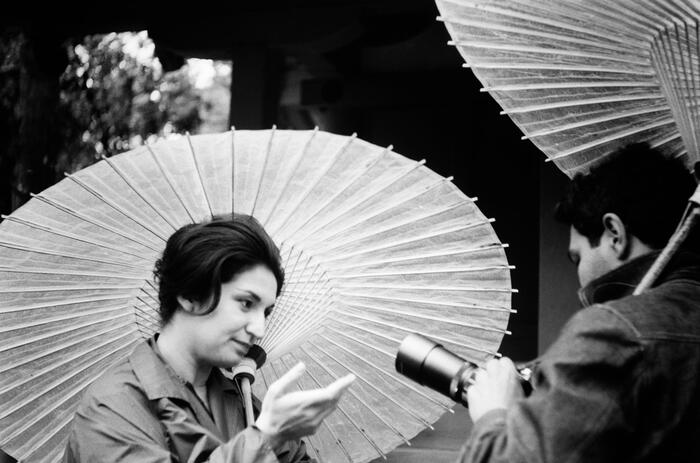
The approach and review of the work that the multidisciplinary Portuguese-Brazilian artist Fernando Lemos (Lisbon, Portugal, 1926 - São Paulo, Brazil, 2019) made in the framework of his relationship with Japan is the reason for the exhibitions that two centers of the Calouste Gulbenkian Foundation dedicate to his figure. It is worth remembering here that both of them transit in the Japanese concept that stands as the central axis of the new headquarters of the Centro de Arte Moderno, recently inaugurated, and on which the dialogue between both curatorial proposals pivots.
FERNANDO LEMOS AND JAPAN REVIEWED AT GULBENKIAN
The approach and review of the work that the multidisciplinary Portuguese-Brazilian artist Fernando Lemos (Lisbon, Portugal, 1926 - São Paulo, Brazil, 2019) made in the framework of his relationship with Japan is the reason for the exhibitions that two centers of the Calouste Gulbenkian Foundation dedicate to his figure. It is worth remembering here that both of them transit in the Japanese concept that stands as the central axis of the new headquarters of the Centro de Arte Moderno, recently inaugurated, and on which the dialogue between both curatorial proposals pivots.
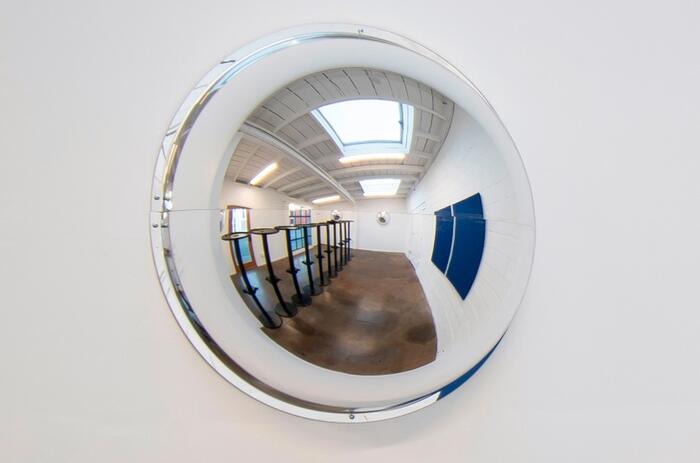
Liberty & Security is the exhibition at Jumex by Débora Delmar (Mexico 1986) in which she delves into the effects of globalization on everyday life, based on a critique of privatization and the homogenization of public space. The artist investigates the physical and symbolic impacts of architecture present in gentrification, consumism and surveillance in the urban environment.
DÉBORA DELMAR ON GENTRIFICATION AND ARCHITECTURE
Liberty & Security is the exhibition at Jumex by Débora Delmar (Mexico 1986) in which she delves into the effects of globalization on everyday life, based on a critique of privatization and the homogenization of public space. The artist investigates the physical and symbolic impacts of architecture present in gentrification, consumism and surveillance in the urban environment.
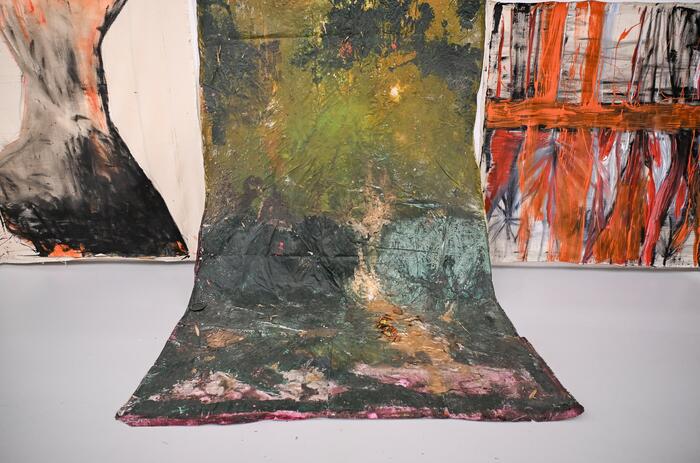
Lisbon's MAAT hosts the exhibition Disco, a show with more than half a thousand works by Vivian Suter (Buenos Aires, Argentina, 1949) with which the institution pays tribute to the pictorial production of the Swiss-Argentine artist and her particular exploration of the interaction with nature and the different techniques and possibilities applicable to painting.
VIVIAN SUTER AND THE RELEVANCE OF SURROUNDINGS AT MAAT IN LISBON
Lisbon's MAAT hosts the exhibition Disco, a show with more than half a thousand works by Vivian Suter (Buenos Aires, Argentina, 1949) with which the institution pays tribute to the pictorial production of the Swiss-Argentine artist and her particular exploration of the interaction with nature and the different techniques and possibilities applicable to painting.
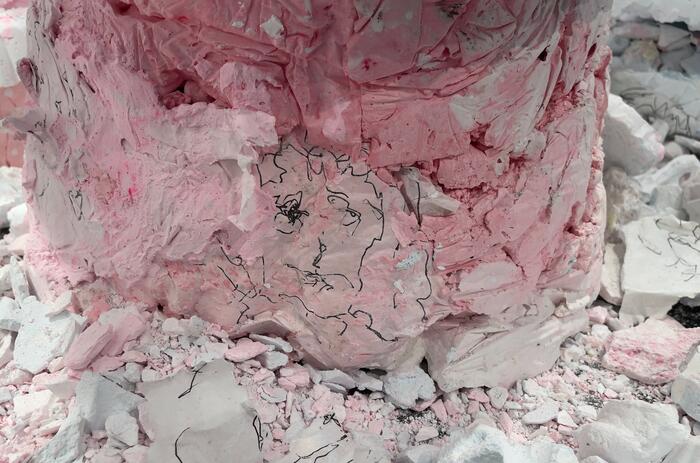
The Museo Nacional de Artes Visuales in Montevideo, Uruguay, presents the work of Mexican artist Adela Casacuberta. It is a site-specific installation Pink mushrooms in the museum's gardens and an exhibition of her most recent works.
ADELA CASACUBERTA: MYCELIUM, FRAGMENTATION AND TRANSFORMATION
The Museo Nacional de Artes Visuales in Montevideo, Uruguay, presents the work of Mexican artist Adela Casacuberta. It is a site-specific installation Pink mushrooms in the museum's gardens and an exhibition of her most recent works.

The Kunsthalle Lissabon presents Quinze Anos de Amor na República dos Pangolins (Fifteen Years of Love at the Pangolin Republic), the third and last exhibition with which the institution celebrates its fifteenth anniversary. On this occasion, the center has invited curator Filipa Ramos, one of the Portuguese professionals with the most international projection, who has managed to put together a roster of artists with a strong Latin American presence, with Ad Minoliti, Amalia Pica, Daniel Gustav Cramer, Flora Rebollo, Gabriel Chaile, Haris Epaminonda, Irene Kopelman, Jonathas de Andrade, Luís Lázaro Matos, Mariana Caló and Francisco Queimadela, Mounira Al Solh, Nuno Sousa Vieira, Sheroanawe Hakihiiwe, Sol Calero, Teresa Solar Abboud and Wilfredo Prieto.
LATIN AMERICA AT THE XV ANNIVERSARY OF KUNSTHALLE LISSABON
The Kunsthalle Lissabon presents Quinze Anos de Amor na República dos Pangolins (Fifteen Years of Love at the Pangolin Republic), the third and last exhibition with which the institution celebrates its fifteenth anniversary. On this occasion, the center has invited curator Filipa Ramos, one of the Portuguese professionals with the most international projection, who has managed to put together a roster of artists with a strong Latin American presence, with Ad Minoliti, Amalia Pica, Daniel Gustav Cramer, Flora Rebollo, Gabriel Chaile, Haris Epaminonda, Irene Kopelman, Jonathas de Andrade, Luís Lázaro Matos, Mariana Caló and Francisco Queimadela, Mounira Al Solh, Nuno Sousa Vieira, Sheroanawe Hakihiiwe, Sol Calero, Teresa Solar Abboud and Wilfredo Prieto.

“I imagine the museum as an archipelago. It is not a continent, but an archipelago (...) The idea today is to put the world in contact with the world, to put some parts of the world in contact with other parts of the world... We must multiply the number of worlds inside museums”. Édouard Glissant (Sainte-Marie, Martinique, 1929-Paris, France, 2011) expressed his vision of museum functionality in this metaphorical way in his work Poetics of Relationship (1990).
CAN THE ARCHIPELAGO ENTER THE MUSEUM? IBEROAMERICA IN THE PROPOSAL OF THE HELGA DE ALVEAR MUSEUM
“I imagine the museum as an archipelago. It is not a continent, but an archipelago (...) The idea today is to put the world in contact with the world, to put some parts of the world in contact with other parts of the world... We must multiply the number of worlds inside museums”. Édouard Glissant (Sainte-Marie, Martinique, 1929-Paris, France, 2011) expressed his vision of museum functionality in this metaphorical way in his work Poetics of Relationship (1990).

Kubikulo presents in its Oporto gallery Sol Raso, an installation by Gabriel Ribeiro (Rio de Janeiro, Brazil, 1990) that is presented as a material and superficial photographic event on polyurethane foams in which the evolution of the exposure of the materials to the elements and the sun for thirty days is captured.

The approach and review of the work that the multidisciplinary Portuguese-Brazilian artist Fernando Lemos (Lisbon, Portugal, 1926 - São Paulo, Brazil, 2019) made in the framework of his relationship with Japan is the reason for the exhibitions that two centers of the Calouste Gulbenkian Foundation dedicate to his figure. It is worth remembering here that both of them transit in the Japanese concept that stands as the central axis of the new headquarters of the Centro de Arte Moderno, recently inaugurated, and on which the dialogue between both curatorial proposals pivots.
FERNANDO LEMOS AND JAPAN REVIEWED AT GULBENKIAN
The approach and review of the work that the multidisciplinary Portuguese-Brazilian artist Fernando Lemos (Lisbon, Portugal, 1926 - São Paulo, Brazil, 2019) made in the framework of his relationship with Japan is the reason for the exhibitions that two centers of the Calouste Gulbenkian Foundation dedicate to his figure. It is worth remembering here that both of them transit in the Japanese concept that stands as the central axis of the new headquarters of the Centro de Arte Moderno, recently inaugurated, and on which the dialogue between both curatorial proposals pivots.

Liberty & Security is the exhibition at Jumex by Débora Delmar (Mexico 1986) in which she delves into the effects of globalization on everyday life, based on a critique of privatization and the homogenization of public space. The artist investigates the physical and symbolic impacts of architecture present in gentrification, consumism and surveillance in the urban environment.
DÉBORA DELMAR ON GENTRIFICATION AND ARCHITECTURE
Liberty & Security is the exhibition at Jumex by Débora Delmar (Mexico 1986) in which she delves into the effects of globalization on everyday life, based on a critique of privatization and the homogenization of public space. The artist investigates the physical and symbolic impacts of architecture present in gentrification, consumism and surveillance in the urban environment.

Lisbon's MAAT hosts the exhibition Disco, a show with more than half a thousand works by Vivian Suter (Buenos Aires, Argentina, 1949) with which the institution pays tribute to the pictorial production of the Swiss-Argentine artist and her particular exploration of the interaction with nature and the different techniques and possibilities applicable to painting.
VIVIAN SUTER AND THE RELEVANCE OF SURROUNDINGS AT MAAT IN LISBON
Lisbon's MAAT hosts the exhibition Disco, a show with more than half a thousand works by Vivian Suter (Buenos Aires, Argentina, 1949) with which the institution pays tribute to the pictorial production of the Swiss-Argentine artist and her particular exploration of the interaction with nature and the different techniques and possibilities applicable to painting.

The Museo Nacional de Artes Visuales in Montevideo, Uruguay, presents the work of Mexican artist Adela Casacuberta. It is a site-specific installation Pink mushrooms in the museum's gardens and an exhibition of her most recent works.
ADELA CASACUBERTA: MYCELIUM, FRAGMENTATION AND TRANSFORMATION
The Museo Nacional de Artes Visuales in Montevideo, Uruguay, presents the work of Mexican artist Adela Casacuberta. It is a site-specific installation Pink mushrooms in the museum's gardens and an exhibition of her most recent works.

The Kunsthalle Lissabon presents Quinze Anos de Amor na República dos Pangolins (Fifteen Years of Love at the Pangolin Republic), the third and last exhibition with which the institution celebrates its fifteenth anniversary. On this occasion, the center has invited curator Filipa Ramos, one of the Portuguese professionals with the most international projection, who has managed to put together a roster of artists with a strong Latin American presence, with Ad Minoliti, Amalia Pica, Daniel Gustav Cramer, Flora Rebollo, Gabriel Chaile, Haris Epaminonda, Irene Kopelman, Jonathas de Andrade, Luís Lázaro Matos, Mariana Caló and Francisco Queimadela, Mounira Al Solh, Nuno Sousa Vieira, Sheroanawe Hakihiiwe, Sol Calero, Teresa Solar Abboud and Wilfredo Prieto.
LATIN AMERICA AT THE XV ANNIVERSARY OF KUNSTHALLE LISSABON
The Kunsthalle Lissabon presents Quinze Anos de Amor na República dos Pangolins (Fifteen Years of Love at the Pangolin Republic), the third and last exhibition with which the institution celebrates its fifteenth anniversary. On this occasion, the center has invited curator Filipa Ramos, one of the Portuguese professionals with the most international projection, who has managed to put together a roster of artists with a strong Latin American presence, with Ad Minoliti, Amalia Pica, Daniel Gustav Cramer, Flora Rebollo, Gabriel Chaile, Haris Epaminonda, Irene Kopelman, Jonathas de Andrade, Luís Lázaro Matos, Mariana Caló and Francisco Queimadela, Mounira Al Solh, Nuno Sousa Vieira, Sheroanawe Hakihiiwe, Sol Calero, Teresa Solar Abboud and Wilfredo Prieto.

“I imagine the museum as an archipelago. It is not a continent, but an archipelago (...) The idea today is to put the world in contact with the world, to put some parts of the world in contact with other parts of the world... We must multiply the number of worlds inside museums”. Édouard Glissant (Sainte-Marie, Martinique, 1929-Paris, France, 2011) expressed his vision of museum functionality in this metaphorical way in his work Poetics of Relationship (1990).
CAN THE ARCHIPELAGO ENTER THE MUSEUM? IBEROAMERICA IN THE PROPOSAL OF THE HELGA DE ALVEAR MUSEUM
“I imagine the museum as an archipelago. It is not a continent, but an archipelago (...) The idea today is to put the world in contact with the world, to put some parts of the world in contact with other parts of the world... We must multiply the number of worlds inside museums”. Édouard Glissant (Sainte-Marie, Martinique, 1929-Paris, France, 2011) expressed his vision of museum functionality in this metaphorical way in his work Poetics of Relationship (1990).

Kubikulo presents in its Oporto gallery Sol Raso, an installation by Gabriel Ribeiro (Rio de Janeiro, Brazil, 1990) that is presented as a material and superficial photographic event on polyurethane foams in which the evolution of the exposure of the materials to the elements and the sun for thirty days is captured.

The approach and review of the work that the multidisciplinary Portuguese-Brazilian artist Fernando Lemos (Lisbon, Portugal, 1926 - São Paulo, Brazil, 2019) made in the framework of his relationship with Japan is the reason for the exhibitions that two centers of the Calouste Gulbenkian Foundation dedicate to his figure. It is worth remembering here that both of them transit in the Japanese concept that stands as the central axis of the new headquarters of the Centro de Arte Moderno, recently inaugurated, and on which the dialogue between both curatorial proposals pivots.
FERNANDO LEMOS AND JAPAN REVIEWED AT GULBENKIAN
The approach and review of the work that the multidisciplinary Portuguese-Brazilian artist Fernando Lemos (Lisbon, Portugal, 1926 - São Paulo, Brazil, 2019) made in the framework of his relationship with Japan is the reason for the exhibitions that two centers of the Calouste Gulbenkian Foundation dedicate to his figure. It is worth remembering here that both of them transit in the Japanese concept that stands as the central axis of the new headquarters of the Centro de Arte Moderno, recently inaugurated, and on which the dialogue between both curatorial proposals pivots.

Liberty & Security is the exhibition at Jumex by Débora Delmar (Mexico 1986) in which she delves into the effects of globalization on everyday life, based on a critique of privatization and the homogenization of public space. The artist investigates the physical and symbolic impacts of architecture present in gentrification, consumism and surveillance in the urban environment.
DÉBORA DELMAR ON GENTRIFICATION AND ARCHITECTURE
Liberty & Security is the exhibition at Jumex by Débora Delmar (Mexico 1986) in which she delves into the effects of globalization on everyday life, based on a critique of privatization and the homogenization of public space. The artist investigates the physical and symbolic impacts of architecture present in gentrification, consumism and surveillance in the urban environment.

Lisbon's MAAT hosts the exhibition Disco, a show with more than half a thousand works by Vivian Suter (Buenos Aires, Argentina, 1949) with which the institution pays tribute to the pictorial production of the Swiss-Argentine artist and her particular exploration of the interaction with nature and the different techniques and possibilities applicable to painting.
VIVIAN SUTER AND THE RELEVANCE OF SURROUNDINGS AT MAAT IN LISBON
Lisbon's MAAT hosts the exhibition Disco, a show with more than half a thousand works by Vivian Suter (Buenos Aires, Argentina, 1949) with which the institution pays tribute to the pictorial production of the Swiss-Argentine artist and her particular exploration of the interaction with nature and the different techniques and possibilities applicable to painting.

The Museo Nacional de Artes Visuales in Montevideo, Uruguay, presents the work of Mexican artist Adela Casacuberta. It is a site-specific installation Pink mushrooms in the museum's gardens and an exhibition of her most recent works.
ADELA CASACUBERTA: MYCELIUM, FRAGMENTATION AND TRANSFORMATION
The Museo Nacional de Artes Visuales in Montevideo, Uruguay, presents the work of Mexican artist Adela Casacuberta. It is a site-specific installation Pink mushrooms in the museum's gardens and an exhibition of her most recent works.

The Kunsthalle Lissabon presents Quinze Anos de Amor na República dos Pangolins (Fifteen Years of Love at the Pangolin Republic), the third and last exhibition with which the institution celebrates its fifteenth anniversary. On this occasion, the center has invited curator Filipa Ramos, one of the Portuguese professionals with the most international projection, who has managed to put together a roster of artists with a strong Latin American presence, with Ad Minoliti, Amalia Pica, Daniel Gustav Cramer, Flora Rebollo, Gabriel Chaile, Haris Epaminonda, Irene Kopelman, Jonathas de Andrade, Luís Lázaro Matos, Mariana Caló and Francisco Queimadela, Mounira Al Solh, Nuno Sousa Vieira, Sheroanawe Hakihiiwe, Sol Calero, Teresa Solar Abboud and Wilfredo Prieto.
LATIN AMERICA AT THE XV ANNIVERSARY OF KUNSTHALLE LISSABON
The Kunsthalle Lissabon presents Quinze Anos de Amor na República dos Pangolins (Fifteen Years of Love at the Pangolin Republic), the third and last exhibition with which the institution celebrates its fifteenth anniversary. On this occasion, the center has invited curator Filipa Ramos, one of the Portuguese professionals with the most international projection, who has managed to put together a roster of artists with a strong Latin American presence, with Ad Minoliti, Amalia Pica, Daniel Gustav Cramer, Flora Rebollo, Gabriel Chaile, Haris Epaminonda, Irene Kopelman, Jonathas de Andrade, Luís Lázaro Matos, Mariana Caló and Francisco Queimadela, Mounira Al Solh, Nuno Sousa Vieira, Sheroanawe Hakihiiwe, Sol Calero, Teresa Solar Abboud and Wilfredo Prieto.

“I imagine the museum as an archipelago. It is not a continent, but an archipelago (...) The idea today is to put the world in contact with the world, to put some parts of the world in contact with other parts of the world... We must multiply the number of worlds inside museums”. Édouard Glissant (Sainte-Marie, Martinique, 1929-Paris, France, 2011) expressed his vision of museum functionality in this metaphorical way in his work Poetics of Relationship (1990).
CAN THE ARCHIPELAGO ENTER THE MUSEUM? IBEROAMERICA IN THE PROPOSAL OF THE HELGA DE ALVEAR MUSEUM
“I imagine the museum as an archipelago. It is not a continent, but an archipelago (...) The idea today is to put the world in contact with the world, to put some parts of the world in contact with other parts of the world... We must multiply the number of worlds inside museums”. Édouard Glissant (Sainte-Marie, Martinique, 1929-Paris, France, 2011) expressed his vision of museum functionality in this metaphorical way in his work Poetics of Relationship (1990).

Kubikulo presents in its Oporto gallery Sol Raso, an installation by Gabriel Ribeiro (Rio de Janeiro, Brazil, 1990) that is presented as a material and superficial photographic event on polyurethane foams in which the evolution of the exposure of the materials to the elements and the sun for thirty days is captured.

The approach and review of the work that the multidisciplinary Portuguese-Brazilian artist Fernando Lemos (Lisbon, Portugal, 1926 - São Paulo, Brazil, 2019) made in the framework of his relationship with Japan is the reason for the exhibitions that two centers of the Calouste Gulbenkian Foundation dedicate to his figure. It is worth remembering here that both of them transit in the Japanese concept that stands as the central axis of the new headquarters of the Centro de Arte Moderno, recently inaugurated, and on which the dialogue between both curatorial proposals pivots.
FERNANDO LEMOS AND JAPAN REVIEWED AT GULBENKIAN
The approach and review of the work that the multidisciplinary Portuguese-Brazilian artist Fernando Lemos (Lisbon, Portugal, 1926 - São Paulo, Brazil, 2019) made in the framework of his relationship with Japan is the reason for the exhibitions that two centers of the Calouste Gulbenkian Foundation dedicate to his figure. It is worth remembering here that both of them transit in the Japanese concept that stands as the central axis of the new headquarters of the Centro de Arte Moderno, recently inaugurated, and on which the dialogue between both curatorial proposals pivots.

Liberty & Security is the exhibition at Jumex by Débora Delmar (Mexico 1986) in which she delves into the effects of globalization on everyday life, based on a critique of privatization and the homogenization of public space. The artist investigates the physical and symbolic impacts of architecture present in gentrification, consumism and surveillance in the urban environment.
DÉBORA DELMAR ON GENTRIFICATION AND ARCHITECTURE
Liberty & Security is the exhibition at Jumex by Débora Delmar (Mexico 1986) in which she delves into the effects of globalization on everyday life, based on a critique of privatization and the homogenization of public space. The artist investigates the physical and symbolic impacts of architecture present in gentrification, consumism and surveillance in the urban environment.

Lisbon's MAAT hosts the exhibition Disco, a show with more than half a thousand works by Vivian Suter (Buenos Aires, Argentina, 1949) with which the institution pays tribute to the pictorial production of the Swiss-Argentine artist and her particular exploration of the interaction with nature and the different techniques and possibilities applicable to painting.
VIVIAN SUTER AND THE RELEVANCE OF SURROUNDINGS AT MAAT IN LISBON
Lisbon's MAAT hosts the exhibition Disco, a show with more than half a thousand works by Vivian Suter (Buenos Aires, Argentina, 1949) with which the institution pays tribute to the pictorial production of the Swiss-Argentine artist and her particular exploration of the interaction with nature and the different techniques and possibilities applicable to painting.

The Museo Nacional de Artes Visuales in Montevideo, Uruguay, presents the work of Mexican artist Adela Casacuberta. It is a site-specific installation Pink mushrooms in the museum's gardens and an exhibition of her most recent works.
ADELA CASACUBERTA: MYCELIUM, FRAGMENTATION AND TRANSFORMATION
The Museo Nacional de Artes Visuales in Montevideo, Uruguay, presents the work of Mexican artist Adela Casacuberta. It is a site-specific installation Pink mushrooms in the museum's gardens and an exhibition of her most recent works.

The Kunsthalle Lissabon presents Quinze Anos de Amor na República dos Pangolins (Fifteen Years of Love at the Pangolin Republic), the third and last exhibition with which the institution celebrates its fifteenth anniversary. On this occasion, the center has invited curator Filipa Ramos, one of the Portuguese professionals with the most international projection, who has managed to put together a roster of artists with a strong Latin American presence, with Ad Minoliti, Amalia Pica, Daniel Gustav Cramer, Flora Rebollo, Gabriel Chaile, Haris Epaminonda, Irene Kopelman, Jonathas de Andrade, Luís Lázaro Matos, Mariana Caló and Francisco Queimadela, Mounira Al Solh, Nuno Sousa Vieira, Sheroanawe Hakihiiwe, Sol Calero, Teresa Solar Abboud and Wilfredo Prieto.
LATIN AMERICA AT THE XV ANNIVERSARY OF KUNSTHALLE LISSABON
The Kunsthalle Lissabon presents Quinze Anos de Amor na República dos Pangolins (Fifteen Years of Love at the Pangolin Republic), the third and last exhibition with which the institution celebrates its fifteenth anniversary. On this occasion, the center has invited curator Filipa Ramos, one of the Portuguese professionals with the most international projection, who has managed to put together a roster of artists with a strong Latin American presence, with Ad Minoliti, Amalia Pica, Daniel Gustav Cramer, Flora Rebollo, Gabriel Chaile, Haris Epaminonda, Irene Kopelman, Jonathas de Andrade, Luís Lázaro Matos, Mariana Caló and Francisco Queimadela, Mounira Al Solh, Nuno Sousa Vieira, Sheroanawe Hakihiiwe, Sol Calero, Teresa Solar Abboud and Wilfredo Prieto.

“I imagine the museum as an archipelago. It is not a continent, but an archipelago (...) The idea today is to put the world in contact with the world, to put some parts of the world in contact with other parts of the world... We must multiply the number of worlds inside museums”. Édouard Glissant (Sainte-Marie, Martinique, 1929-Paris, France, 2011) expressed his vision of museum functionality in this metaphorical way in his work Poetics of Relationship (1990).
CAN THE ARCHIPELAGO ENTER THE MUSEUM? IBEROAMERICA IN THE PROPOSAL OF THE HELGA DE ALVEAR MUSEUM
“I imagine the museum as an archipelago. It is not a continent, but an archipelago (...) The idea today is to put the world in contact with the world, to put some parts of the world in contact with other parts of the world... We must multiply the number of worlds inside museums”. Édouard Glissant (Sainte-Marie, Martinique, 1929-Paris, France, 2011) expressed his vision of museum functionality in this metaphorical way in his work Poetics of Relationship (1990).

Kubikulo presents in its Oporto gallery Sol Raso, an installation by Gabriel Ribeiro (Rio de Janeiro, Brazil, 1990) that is presented as a material and superficial photographic event on polyurethane foams in which the evolution of the exposure of the materials to the elements and the sun for thirty days is captured.

The approach and review of the work that the multidisciplinary Portuguese-Brazilian artist Fernando Lemos (Lisbon, Portugal, 1926 - São Paulo, Brazil, 2019) made in the framework of his relationship with Japan is the reason for the exhibitions that two centers of the Calouste Gulbenkian Foundation dedicate to his figure. It is worth remembering here that both of them transit in the Japanese concept that stands as the central axis of the new headquarters of the Centro de Arte Moderno, recently inaugurated, and on which the dialogue between both curatorial proposals pivots.
FERNANDO LEMOS AND JAPAN REVIEWED AT GULBENKIAN
The approach and review of the work that the multidisciplinary Portuguese-Brazilian artist Fernando Lemos (Lisbon, Portugal, 1926 - São Paulo, Brazil, 2019) made in the framework of his relationship with Japan is the reason for the exhibitions that two centers of the Calouste Gulbenkian Foundation dedicate to his figure. It is worth remembering here that both of them transit in the Japanese concept that stands as the central axis of the new headquarters of the Centro de Arte Moderno, recently inaugurated, and on which the dialogue between both curatorial proposals pivots.

Liberty & Security is the exhibition at Jumex by Débora Delmar (Mexico 1986) in which she delves into the effects of globalization on everyday life, based on a critique of privatization and the homogenization of public space. The artist investigates the physical and symbolic impacts of architecture present in gentrification, consumism and surveillance in the urban environment.
DÉBORA DELMAR ON GENTRIFICATION AND ARCHITECTURE
Liberty & Security is the exhibition at Jumex by Débora Delmar (Mexico 1986) in which she delves into the effects of globalization on everyday life, based on a critique of privatization and the homogenization of public space. The artist investigates the physical and symbolic impacts of architecture present in gentrification, consumism and surveillance in the urban environment.

Lisbon's MAAT hosts the exhibition Disco, a show with more than half a thousand works by Vivian Suter (Buenos Aires, Argentina, 1949) with which the institution pays tribute to the pictorial production of the Swiss-Argentine artist and her particular exploration of the interaction with nature and the different techniques and possibilities applicable to painting.
VIVIAN SUTER AND THE RELEVANCE OF SURROUNDINGS AT MAAT IN LISBON
Lisbon's MAAT hosts the exhibition Disco, a show with more than half a thousand works by Vivian Suter (Buenos Aires, Argentina, 1949) with which the institution pays tribute to the pictorial production of the Swiss-Argentine artist and her particular exploration of the interaction with nature and the different techniques and possibilities applicable to painting.

The Museo Nacional de Artes Visuales in Montevideo, Uruguay, presents the work of Mexican artist Adela Casacuberta. It is a site-specific installation Pink mushrooms in the museum's gardens and an exhibition of her most recent works.
ADELA CASACUBERTA: MYCELIUM, FRAGMENTATION AND TRANSFORMATION
The Museo Nacional de Artes Visuales in Montevideo, Uruguay, presents the work of Mexican artist Adela Casacuberta. It is a site-specific installation Pink mushrooms in the museum's gardens and an exhibition of her most recent works.

